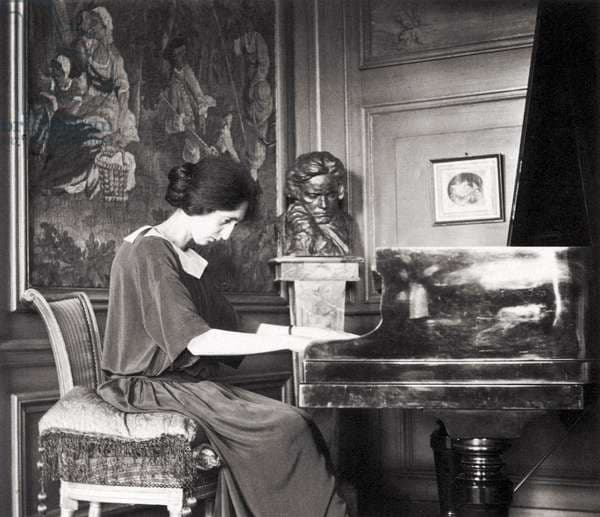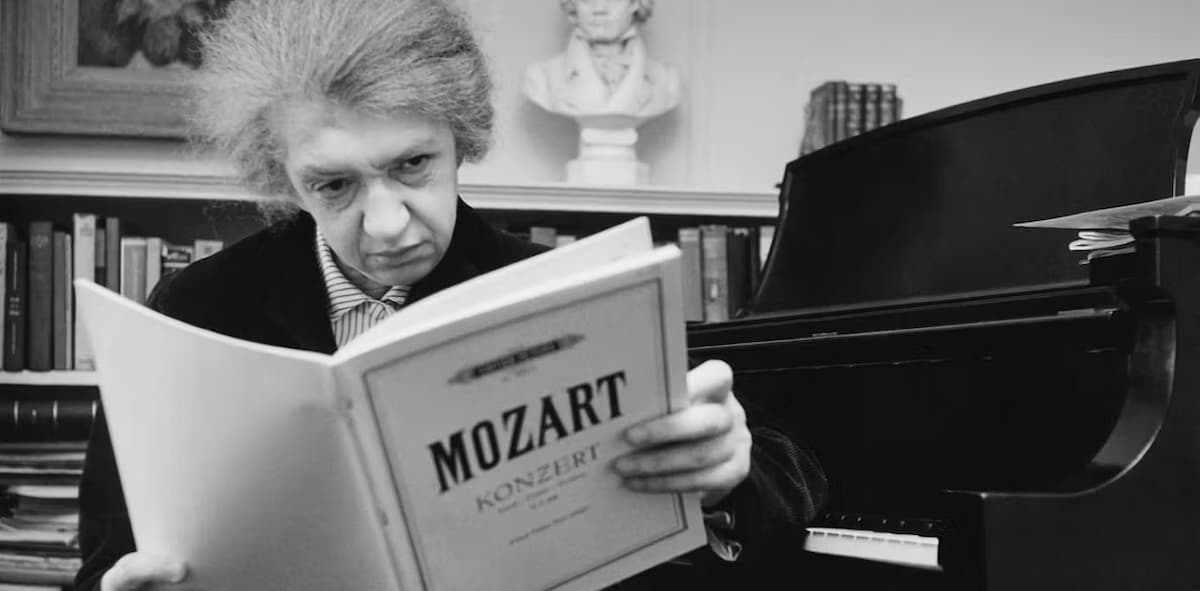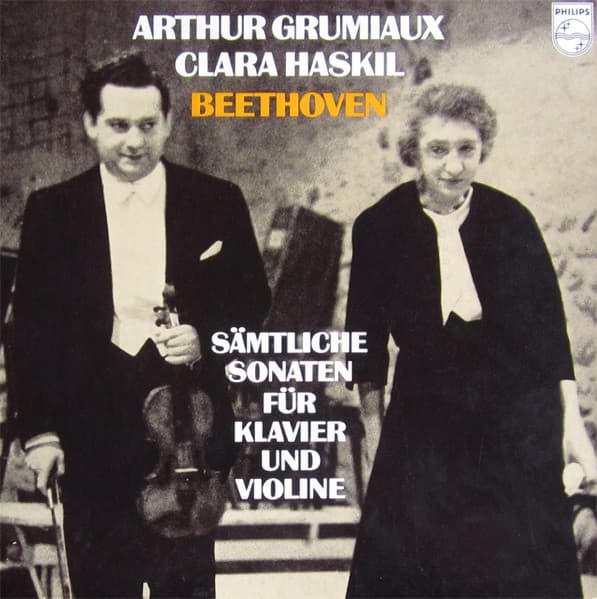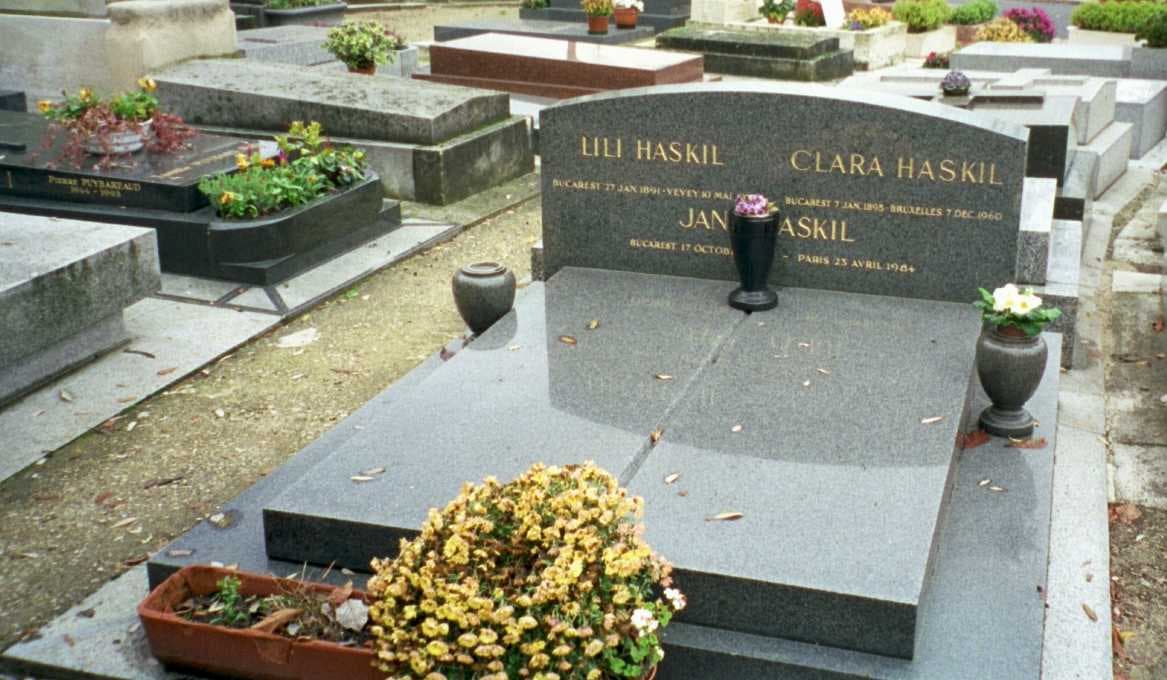Clara Haskil has been trumpeted as the quintessential pianist’s pianist, and yet many music lovers don’t know who she is. It’s time to fix that. Today we’re looking at the incredible true story of the life and tragic death of Clara Haskil – and her astonishing music-making.
Clara Haskil’s Early Life

Clara Haskil
Clara Haskil was born in January 1895 in Bucharest, Romania, the second of three musical sisters. Her first piano teacher was her mother, and her otherworldly musical talent was apparent immediately.
When she was four, a music professor friend visited the Haskil house and played a Mozart piano sonata for the family. Afterwards, Clara sat down at the piano, played it back from memory, and transcribed it into another key, all without ever having any instruction. No wonder why her sister once said, “We have talent, but Clara has genius.” She began studying at the Bucharest Conservatory soon after.
Around this time her father died from pneumonia, leaving her mother a young and overwhelmed single mom. Perhaps due in part to this, when she was seven, she moved with an uncle to Vienna to study piano and violin at the Vienna Conservatory, while her mother stayed in Bucharest. Her teacher Richard Robert and his wife served as her surrogate parents, and she became very close with another one of Robert’s other students: future conducting superstar George Szell.
After three years in Vienna, it was recommended that she study at the legendary Paris Conservatoire. So in 1905, she moved yet again to a new country in the hopes of advancing her musical career. The move paid off: in 1910 she graduated with the Premier Prix at the age of fifteen.
Health and Career Troubles

Clara Haskil in a photograph used in the documentary ‘Clara Haskil. Le mystère de l’interprète’. © Louise Productions
Throughout her life, Haskil struggled with a variety of health issues, including severe chronic pain that greatly impacted her day-to-day life. As a teenager, her scoliosis became so severe that doctors recommended that she live in a medical facility in a cast. Between the chronic pain, her extreme stage fright, and general poor health (not to mention the catastrophe of the Great War), she found it difficult to make a professional breakthrough. And as if that wasn’t enough to deal with, her mother died in 1917, too.
During the 1920s, she fought her way back onto the stage. A number of prestigious concert appearances across Europe followed, alongside the most celebrated conductors of the era, including Sir John Barbirolli, Sir Thomas Beecham, and Carl Munch. She also toured in America to great acclaim.
World War II and Career Renaissance
When World War II broke out, her Jewish ancestry put her in danger. So she fled Paris to Marseilles. During this time, she developed a tumor on her optic nerve, which gave her double vision and debilitating headaches. In 1941, during her exile in Marseilles, she underwent a groundbreaking surgery for it…and was awake the entire time, playing Mozart to provide feedback to her surgeon (who, incredibly, had been smuggled in from Paris specifically for this procedure). In 1942, she escaped to neutral Switzerland, putting her out of reach of Nazi persecution.
Wolfgang Amadeus Mozart: Piano Sonata No. 10 in C Major, K. 330 (Clara Haskil, piano)
Her career really began taking off after World War II when she was in her fifties. She made her first album for the Decca label in 1947, recording the fourth Beethoven piano concerto with the London Philharmonic Orchestra. During this time, she was known to ask modestly, “Why does everyone want to hear me suddenly? I don’t seem to play differently from before.” Reviews of her concerts were now astonishing, once-in-a-generation raves. She never truly took them to heart, and her self-criticism often made her miserable.
Ludwig van Beethoven: Piano Concerto No. 4 in G Major, Op. 58 (Clara Haskil, piano; London Philharmonic Orchestra; Carlo Zecchi, cond.)

Arthur Grumiaux and Clara Haskil’s Beethoven recording © Discogs
Over the course of her career, she became especially famous for her performances of Mozart, both his concertos and chamber music. She teamed up with star violinist Arthur Grumiaux to put out some of the most elegant Mozart playing ever put to disc. Mozart was also her favorite composer.
Wolfgang Amadeus Mozart: Violin Sonata No. 18 in G Major, K. 301 (Arthur Grumiaux, violin; Clara Haskil, piano)
Her Death and Legacy

Grave of Clara Haskil in Montparnasse Cemetery, Paris © Wikipedia
In December 1960 a tragic freak accident ended her life: she was on a concert tour with Arthur Grumiaux, then tripped down some concrete stairs at a Brussels train station and fell unconscious. She awoke briefly, asking her sisters to apologize to Grumiaux for leaving him without a recital partner, and saying she was relieved that she hadn’t hurt her hands. Then she lapsed back into unconsciousness and died the following morning from her injuries, a month away from her 66th birthday.
Haskil was great friends with the film star (and violinist!) Charlie Chaplin, who offered this heartfelt and very impressive tribute to his friend after her death: “In my lifetime I have met three geniuses; Professor Einstein, Winston Churchill, and Clara Haskil. I am not a trained musician but I can only say that her touch was exquisite, her expression wonderful, and her technique extraordinary.”
Her legacy lives on through her recordings, and also via the Clara Haskil International Piano Competition, which was founded in 1963 and is held every two years in her adopted hometown of Vevey, Switzerland. It has helped launch the careers of Christoph Eschenbach, Richard Goode, Mitsuko Uchida, Jeffrey Kahane, Inon Barnatan, Sunwook Kim, among others.
Pope Francis has mentioned that Haskil is one of his favorite musicians of all time, and listening to her recordings, it’s easy to see why. In the words of her friend, pianist Nikita Magaloff, “Never, even amongst my most illustrious colleagues, have I met with that incredible and disconcerting facility and pianistic ease… That which others achieve by work, research, and reflection, seems to come to Clara from heaven without problems.”
For more of the best in classical music, sign up for our E-Newsletter
